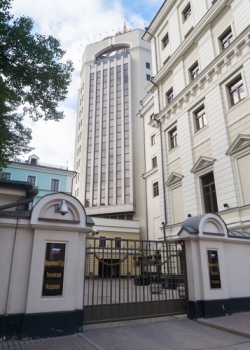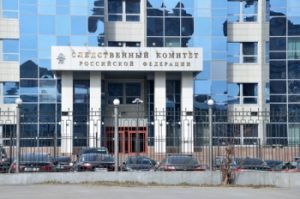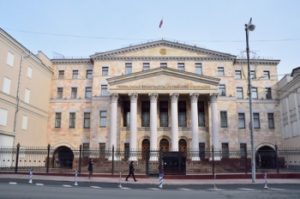
CCF Latest Report: Enforcement Loopholes, Political Prosecutions of Businessmen, Lack of Transparency

The Commission for the Control of INTERPOL’s Files (CCF) has published its new annual report. It covers the Commission’s activities throughout 2017, including the transition it has undergone to comply with its new Statute adopted by the INTERPOL General Assembly. The report also reflects on the problems with the enforcement of decisions to remove politically motivated or otherwise unlawful red notices and diffusions, the Commission’s application of Article 3 of the INTERPOL Constitution, and the lack of transparency in its public disclosures.
Last year, Spanish authorities detained Bill Browder, a prominent critic of Vladimir Putin. Although the full circumstances of this arrest remain unclear, it has been alleged that Spain acted on an active Russian request disseminated through INTERPOL’s channels. Prior to this arrest, Russia had made several attempts to publish a red notice against Mr. Browder. INTERPOL had refused to cooperate and called the case predominantly political. Nevertheless, in 2017, Russia reportedly succeeded in disseminating a diffusion against Mr. Browder. Unlike red notices, diffusions aren’t subject to any screening from INTERPOL prior to their publication.
After Mr. Browder’s arrest in Spain, INTERPOL’s enforcement of the Commission’s decisions became the center of attention. Did INTERPOL successfully block each and every red notice and diffusion already found to be in violation of its rules from being disseminated? I can think of only two reasons why an individual found to be a victim of INTERPOL abuse would appear on the international wanted list at the same country’s request: either INTERPOL did not have a comprehensive mechanism that would match incoming red notices and diffusions with its prior findings of abuse, or the organization had an unspoken policy which would under certain circumstances allow the same governments to put victims of their abuse back on the wanted list.
According to its latest report, “[t]he Commission dealt with cases where the sources of data have sent a diffusion to INTERPOL members to request the arrest of an individual, whereas a request for a red notice has previously been refused.” Moreover, “[i]t also processed requests which highlighted the use of the SLTD [(Stolen and Lost Travel Documents)] database where a diffusion or a notice to arrest a person was considered not to comply with INTERPOL’s rules.” In the report, the Commission calls this practice “misuse of INTERPOL’s channels,” and notes that it deletes any such data and informs the countries which received it that its channels cannot be used in such cases. The report, therefore, confirms that INTERPOL does not possess a comprehensive mechanism that would preclude the same governments from putting individuals found to be victims of red notice and diffusion abuse on the INTERPOL wanted list. This is, of course, unfortunate, because the loophole should be easy to fix by simply implementing a reliable computer software. The recent reforms aimed at guaranteeing individuals an effective remedy against INTERPOL abuse seem futile if governments can with impunity (taking into consideration INTERPOL’s unwillingness to punish countries-abusers) harass their victims by utilizing diffusions or the SLTD database. The question remains, after an abusive government exercises all these ‘options,’ is this the end of harassment, or is there yet another way to put the same individual back on the international wanted list by, for example, charging her/him with a new crime or issuing a different type of notice?
Another major takeaway from the Commission’s latest report is its application of Article 3 of the INTERPOL Constitution. In its 2016 annual report, the Commission for the first time in its annual public disclosures recognized politically motivated prosecutions of businessmen among the main issues before it. At the same time, it did not comment on its application of Article 3 in cases in which individuals have not actively engaged in any political activities but instead became victims of corrupt prosecutions, for example, in aid of an illegal takeover of their businesses or other proprietary rights. Some of the published excerpts from the Commission’s decisions in individual cases suggest that it has applied Article 3 in such cases despite the fact that there has been no active political activity on the part of the individuals challenging the governments’ use of INTERPOL’s channels. The 2017 annual report also suggests that the Commission has taken this approach: “While a few of [Article 3] cases involve former high-ranking politicians, most of them concern people involved in business activities and charged with various fraud-related offenses.” Although the Commission still has not unequivocally confirmed that Article 3 applies in such cases, its published decisions and the latest annual report suggest that it does.
The third important takeaway from the 2017 report is that the Commission has still not truly become any more transparent and yet again avoided disclosing the names of countries that have violated its rules. Despite the growing attention being paid to INTERPOL abuse, the number of instances in which the public learns about the countries-abusers and the nature of their violations is very low compared to the growing number of complaints the Commission receives from individuals. In its 2010 annual report the Commission identified member countries against which it had received the majority of complaints without, however, naming the countries the Commission found to be in violation of INTERPOL’s rules and the nature of their violations. None of the Commission’s reports for the following years, including its most recent report, identifies member countries against which the Commission has received complaints, the number of times the Commission found those countries in violations of its rules or the nature of their violations. The Commission purview clearly empowers it to disclose this information to the general public.



 The full circumstances of this arrest remain unclear. According to some reports, at the time, there was an active Russian request to detain Mr. Browder published in INTERPOL’s database. INTERPOL, however, denied its involvement, and some commentators
The full circumstances of this arrest remain unclear. According to some reports, at the time, there was an active Russian request to detain Mr. Browder published in INTERPOL’s database. INTERPOL, however, denied its involvement, and some commentators 







